A group of older people wait in a hallway in a vocational school in Riga. The men and women must take the language test, which proves that they have a basic knowledge of the Latvian language.
Now, at 67, I’m going to school like a little boy.
67-year-old Sergei says this is difficult for him; he has worked with his hands all his life. «All I needed was a hammer, nails and a steering wheel. Now, at 67, I’m going to school like a little boy.”
Legend:
People with Russian passports are waiting for the Latvian test.
SRF/Judith Huber
Sergei, like everyone present in the room, came to Latvia during the Soviet era (see box). Even after Latvia’s independence in 1991, the Russian-speaking minority was never really forced to learn Latvian. She more or less kept to herself.
What all those present have in common is that they accepted Russian citizenship around ten years ago. This meant they were able to receive a Russian pension from the age of 55. This Russian pension was like a gift from heaven for them, says one of the women waiting for the language test. Because she had to raise her child alone after her husband’s death. This meant she was able to work and receive money from Russia at the same time.
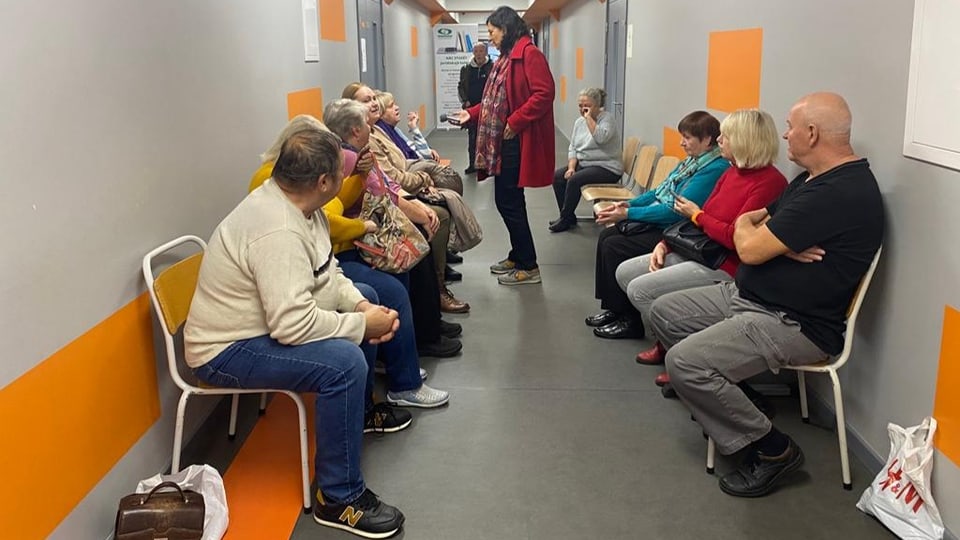
Legend:
Pensioners are waiting for their Latvian exam.
ZVG/Alexander Welscher
Back when the Kremlin distributed Russian passports in Latvia, the Latvian state accepted it. But now the same state requires these people to have a basic knowledge of the Latvian language. Otherwise they have to leave the country.
One has the feeling that there is nothing in common with Russia anymore.
Reinhard Krumm is the head of the Baltic office of the German Friedrich Ebert Foundation. He says: The reason for this measure is the Russian war against Ukraine. “You get the feeling that there is nothing in common with Russia anymore.” Russia’s shadow lies heavily on Latvia.
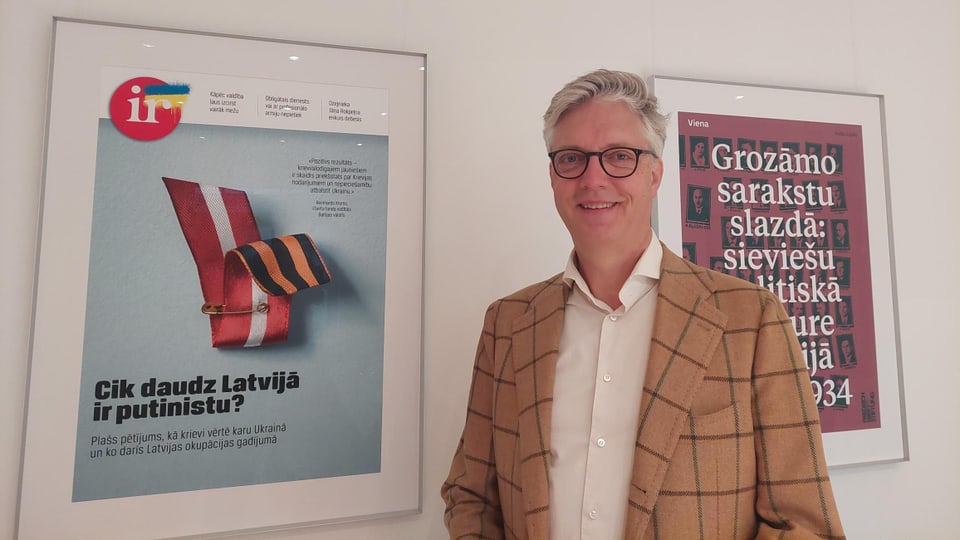
Legend:
Reinhard Krumm, head of the Friedrich Ebert Foundation’s office for the Baltic States in Riga.
SRF/Judith Huber
And Igors Rajevs, State Secretary in the Interior Ministry, says: “We are determined to find out who exactly lives in Latvia, how tolerant and loyal these people are to our country and how much they want to integrate.” And he emphasizes: Only Russian citizens with a residence permit are affected.
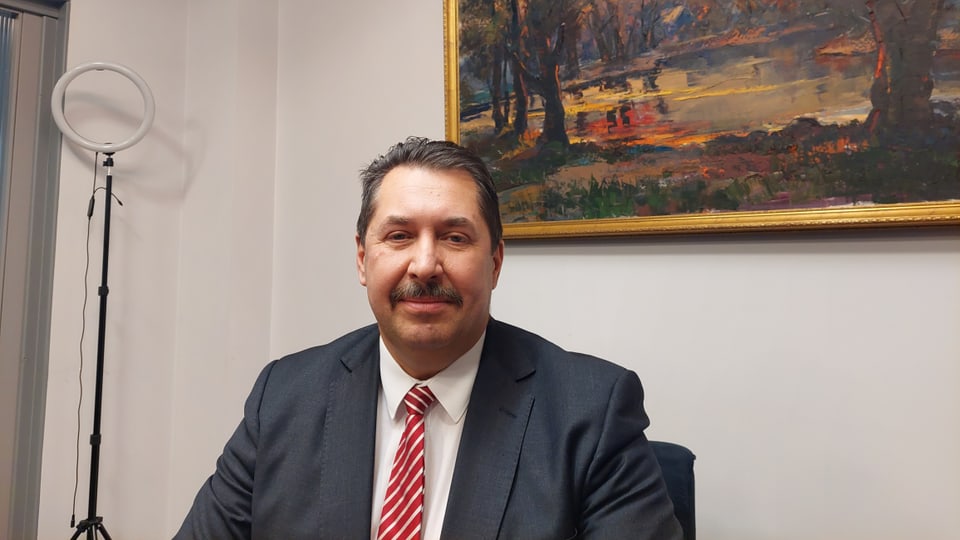
Legend:
Igors Rajevs, State Secretary in the Interior Ministry, in his office.
SRF/Judith Huber
There is a fear that the Kremlin could incite these people or even justify an invasion by saying that it has to protect its own citizens – similar to what happened in Ukraine.
We are a small people and we have to fight for the Latvian language to continue to exist.
That’s why the Latvian government is now taking action – and the majority of people approve, as a small survey in Riga shows. «We are a small people and we have to fight for the Latvian language to continue to exist. If someone wants to live here longer, then they should learn our language,” says 65-year-old Arnis. And 39-year-old Laura says: Speaking the language of the country you live in is a question of respect. This should have been done 30 years ago, not just now.
Now the approximately 5,000 people who did not register for the exams on time must leave the country by the end of November. These include old people who have lived in Latvia for decades. Those surveyed do not agree with this, saying it is too harsh.
But the authorities want to take action: From their point of view, these people are rebels who do not want to integrate and have therefore forfeited their right of residence. The example of pensioner Raissa shows that reality is more complex. She lives in Daugavpils, the second largest city in the country – over 200 kilometers from Riga. Daugavpils was once an industrial center and a way station to the east. Today the borders are practically closed, the area is isolated and poor. And: almost everyone speaks Russian. 67-year-old Raissa lives in a prefabricated building on the ninth floor.
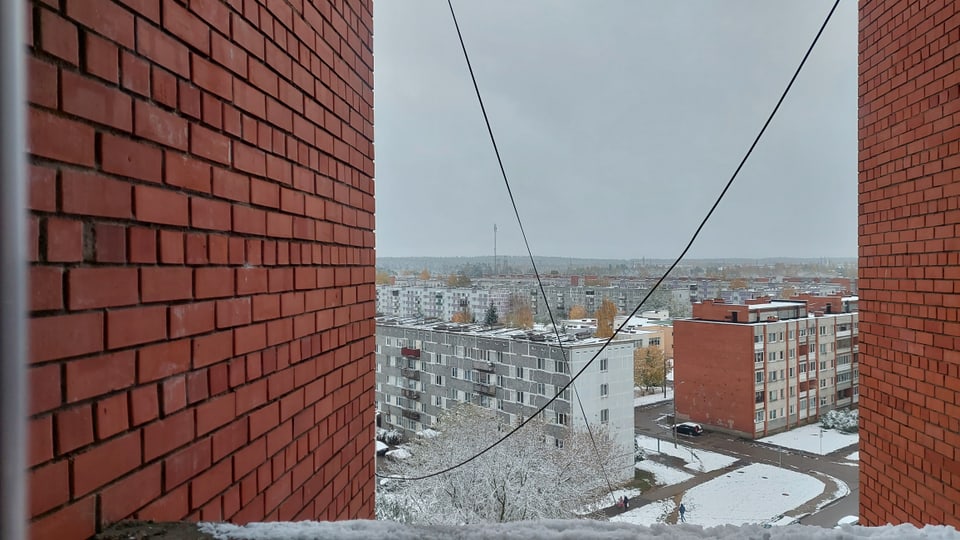
Legend:
A typical settlement on the outskirts of Daugavpils.
SRF/Judith Huber
The elevator is being renovated and the stairwell smells of soup. The apartment is simple but well maintained. When Raissa begins to talk, tears immediately come to her eyes. From her statements it is clear: she is trapped in a bureaucratic nightmare.
In mid-September I received a text message informing me that my residence permit had been suspended. A week later it was said that it had been cancelled.
She misunderstood the complicated requirements and started learning Latvian, but wanted to take more time – and missed the deadline. The result: “I received a text message in mid-September saying that my residence permit was suspended. A week later they said it had been cancelled.”
This means: She is no longer entitled to social benefits, her pension is withheld, she cannot go to the doctor and will soon be in the country illegally. A dramatic situation.
We collect donations, buy food and gift cards from pharmacies and bring them to those affected.
A friend therefore alerted the group led by local activist and journalist Olga Petkewitsch. Petkewitsch says what her group of volunteers does: “We collect donations, buy food and gift cards from pharmacies and bring it to those affected.” Because there are some in Daugavpils who are in the same situation as Raissa. Olga says: Sometimes people gave her 20 euros and said, Olja, give this to your grandmothers.
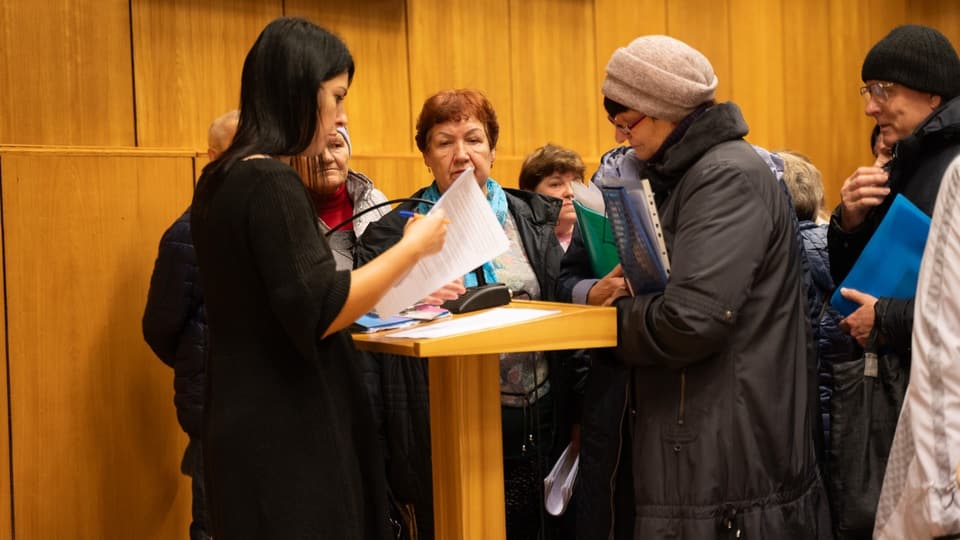
Legend:
Activist and journalist Olga Petkewitsch helps older people fill out complicated forms and applications.
ZVG
Raissa has lived in Latvia for 46 years. What’s more, it doesn’t come from Russia at all, but from eastern Ukraine. She also says: She applied for the Russian passport out of necessity, for financial reasons. Now she is considered Russian. But she has no relatives in Russia.
Petkewitsch says that many of those affected are overwhelmed by the complicated requirements. That’s why she organizes information events, posts videos with instructions and helps fill out applications. The activist belongs to the younger generation, she speaks fluent Latvian and Russian, is educated and thus serves as a kind of mediator.
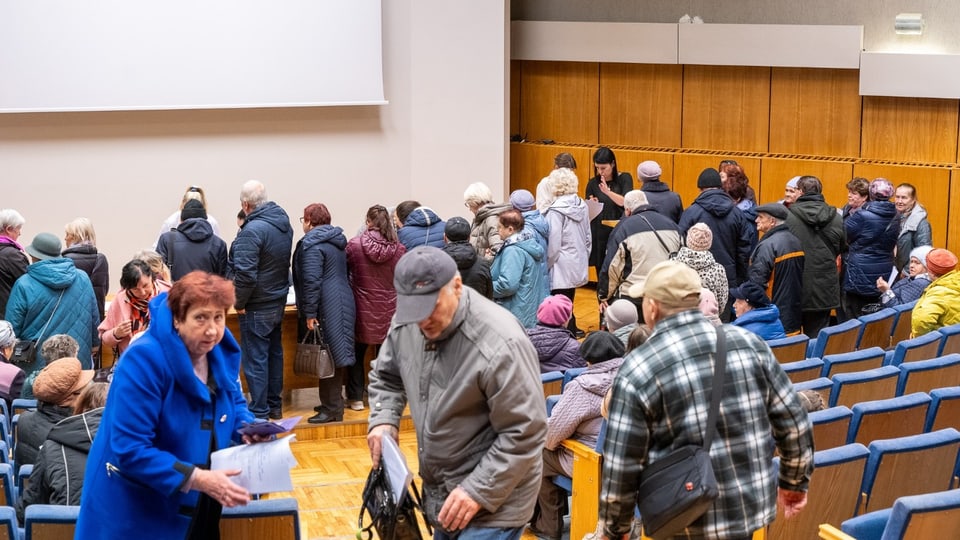
Legend:
Information event in the Daugavpils City Parliament with activist Olga Petkewitsch.
ZVG
But what about those who are the actual target of this measure: those who fundamentally refuse integration? Petkevich says: Yes, there are, but there are only a few. They are still bitter about not becoming citizens of the country after the country’s independence in 1991.
At that time, citizenship was only granted to those who had lived in the country before the Soviet invasion in 1940 – and their descendants. The rest of the population could only become naturalized later and subject to certain conditions.
All of this is now taking its toll. And so the first people should have left Latvia by the end of November. Otherwise they risk deportation. However, it is unlikely that the Latvian state will actually deport people. A lawsuit is also pending before the Constitutional Court.
For people like Raissa, the current situation is torture: they live without income, without legal status and in uncertainty in the country that is actually their home.
